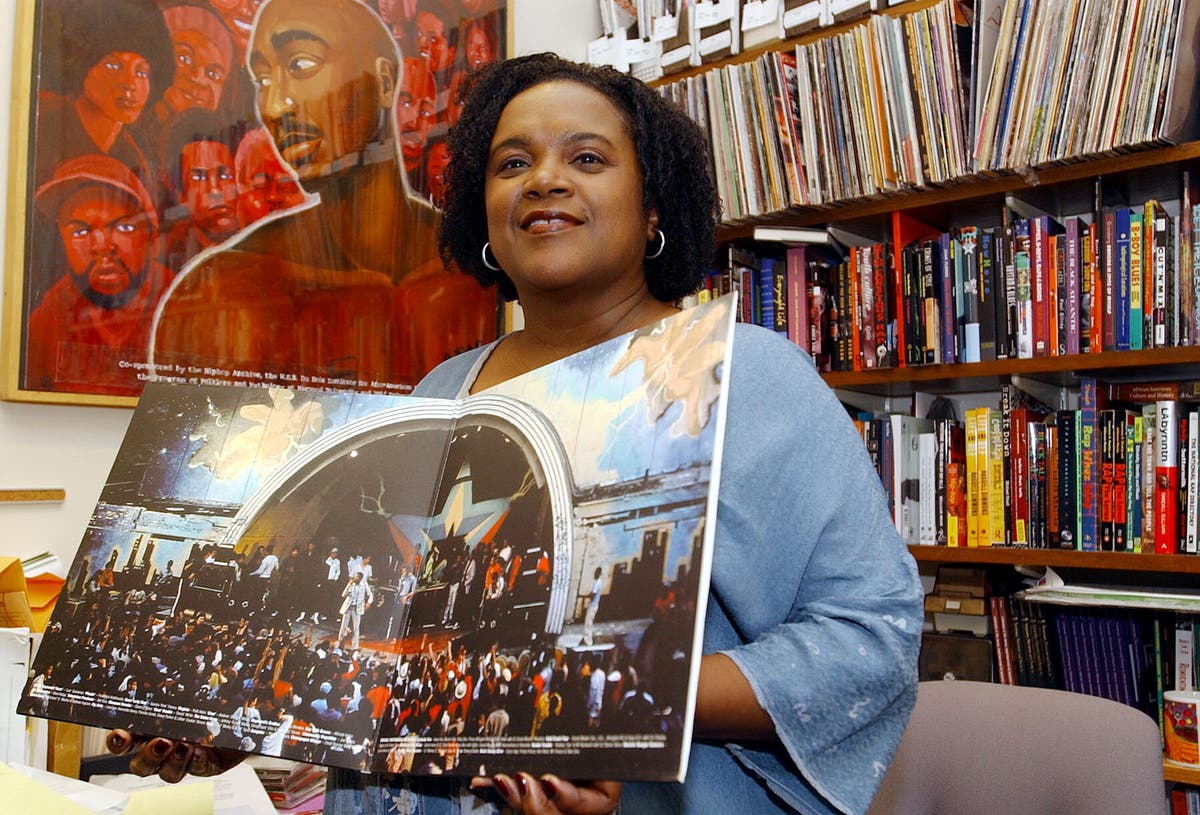Marcyliena H. Morgan, the visionary linguistic anthropologist who founded Harvard University’s Hip Hop Archive & Research Institute and championed hip-hop as a subject of serious academic study, died on September 28 in a Boston hospital due to complications from Alzheimer’s disease. She was 75.
A professor in Harvard’s Department of African and African American Studies, Morgan almost single-handedly shifted how academia regarded a genre born in the streets, ensuring its preservation and study alongside classical music and literature. Her legacy will endure at Harvard, where the archive was recently renamed in her honor as the Marcyliena H. Morgan Hip Hop Archive & Research Institute.
🌟 A Visionary Academic Path
Morgan’s journey to becoming the “scholar queen of hip-hop,” as dubbed by her colleague Henry Louis Gates Jr., was both intentional and unexpected. Born on May 8, 1950, in Chicago, she was immersed in a rich oral tradition from a young age. She earned bachelor’s and master’s degrees from the University of Illinois at Chicago, a second master’s from the University of Essex in England, and a Ph.D. in anthropological linguistics from the University of Pennsylvania.
Her focus on hip-hop crystallized in the early 1990s while she was teaching a course on urban speech communities at the University of California, Los Angeles. After being inundated with student papers analyzing the innovative language of West Coast rappers like Ice Cube, she decided to take their work seriously.
“I said, ‘No, no, no, this isn’t a course about fun,'” she later recalled. “But they said, ‘You don’t understand, this is about real things, this is about life.’ So I decided to look at what they were saying”.
🏛️ The Birth of an Archive
In 1996, Morgan pitched her radical idea to Gates: a hip-hop archive at Harvard. Gates, a self-described “Motown man,” initially thought hip-hop was a passing fad. Morgan persisted, insisting it was “the lingua franca of American popular culture”. Her vision became a reality in 2002 with the launch of the Hiphop Archive & Research Institute at Harvard’s Hutchins Center for African & African American Research.
The archive was not merely a collection but a dynamic space featuring a working turntable for DJs and linoleum flooring for break-dancing exhibitions. It grew to house a vast collection of:
· Rap albums from artists like Wu-Tang Clan and Missy Elliott
· Hip-hop magazines like The Source and Vibe
· Cultural artifacts, including Flavor Flav’s iconic clock necklace
· Scholarly essays and conference materials
🎓 Milestones and Lasting Impact
Morgan’s work established foundational pillars for hip-hop scholarship and its recognition as high art.
· Academic Legitimacy: She was the first professor at Harvard to teach courses on hip-hop history and theory, treating the genre with the same rigor as classical forms. Her 2009 book, “The Real Hiphop: Battling for Knowledge, Power, and Respect in the LA Underground,” examined the culture through its language and community.
· The Classic Crates Project: In one of her most symbolic initiatives, Morgan curated a collection of seminal hip-hop albums for Harvard’s Eda Kuhn Loeb Music Library. Works by Nas, Lauryn Hill, and Kendrick Lamar were installed alongside those of Beethoven and Bach, accompanied by scholarly liner notes.
· Inspiring a Scholarly Movement: Harvard’s archive became a model for similar institutions at Cornell University, the University of Massachusetts Boston, and elsewhere.
· Elevating Women’s Voices: Morgan long championed the contributions of women in hip-hop, highlighting how figures like MC Lyte, Salt-N-Pepa, and TLC led conversations on safe sex and self-respect.
🎤 Artists and Scholars She Lifted
Morgan’s work provided the academic “imprimatur” that helped usher hip-hop into the highest echelons of cultural recognition. Reflecting on Kendrick Lamar’s 2018 Pulitzer Prize, Harvard professor Imani Perry stated, “I actually can’t imagine Kendrick Lamar having received a Pulitzer without the imprimatur of the archive”.
Her archive and classroom hosted and influenced a generation of artists, from convening a major academic conference on Tupac Shakur in 2003 to hosting Chance the Rapper for a class discussion in 2015. The Classic Crates project explicitly canonized albums like A Tribe Called Quest’s “The Low End Theory” and Lauryn Hill’s “The Miseducation of Lauryn Hill” as foundational texts.
👩🍳 A Community Builder
Beyond her public legacy, Morgan was remembered as a “truth-teller” and a “community builder”. She and her husband, Harvard professor Lawrence Bobo, were renowned for their hospitality, particularly for a post-Thanksgiving holiday she invented called “It’s Not Over Yet,” where dozens gathered for leftovers and conversation. Colleagues fondly recalled her “legendary” coconut cake.
Morgan is survived by her husband and three sisters, Madeline, Muzette, and Marla. Her passing marks the close of a pioneering chapter, but her work ensures that hip-hop’s history, and its message of building a more just world through knowledge and creativity, will be studied and valued for generations to come.

Leave a Reply